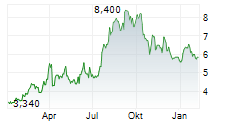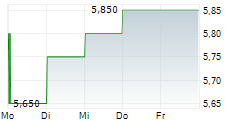
CHENGDU, China, April 5, 2025 /PRNewswire/ -- Keymed Biosciences Inc. (HKEX: 02162) ("Keymed" or the "Company") today announced that the prestigious medical journal Nature Medicine has published the results from the Phase III trial of its independently developed IL-4Ra antibody stapokibart, for the treatment of moderate-to-severe seasonal allergic rhinitis (SAR). The study, led by Professor Luo Zhang of Beijing Tongren Hospital, Capital Medical University, represents the world's first clinical report on an IL-4Ra-targeted biologic for SAR, underscoring Chinese scientists' pioneering role in allergic rhinitis innovation.
The study demonstrated that stapokibart significantly alleviates clinical symptoms and improves quality of life in patients with moderate-to-severe SAR who remained inadequately controlled despite standard therapies. This breakthrough offers a transformative solution to a global health challenge, ushering in a new era of biologic treatments for allergic rhinitis and providing hope to hundreds of millions of patients worldwide.
Rapid, potent and sustained control of nasal symptoms:
Rapid relief of nasal obstruction:Compared to placebo group, patients in stapokibart group achieved significantly greater improvement in nasal congestion symptom at Day 2. By Day 7, 72% of patients reported clear nasal breathing, with the cumulative response rate rising to 86% at Week 2 and 94% at Week 4.
Potent and sustained control of nasal symptoms:Stapokibart demonstrated a 2.7-point reduction in daily reflective total nasal symptom score (rTNSS) from baseline by Day 4, significantly greater than the improvement in the placebo group.
Over the 2-week treatment period, stapokibart achieved a 3.6-point reduction in daily rTNSS from baseline, with a least squares (LS) mean difference of -1.3 points vs. placebo (the primary efficacy endpoint). Additionally, 62% of patients achieved mild or no symptom (defined as rTNSS =1 point for each symptom); Over the 4-week treatment period, the stapokibart group showed a 4.9-point reduction in daily rTNSS from baseline, with an LS mean difference of -1.7 points vs. placebo. The proportion of patients achieving mild or no nasal symptoms reached 84%.
Sustained and significant improvement of ocular symptoms:
Stapokibart demonstrated clinically significant reductions in the daily reflective Total Ocular Symptom Score (rTOSS) from baseline, with improvements of 2.6 points at week 2 and 3.7 points at week 4 respectively, both significantly superior to placebo. By Week 2, 62% of patients achieved mild or no ocular symptoms (defined as rTOSS =1 point for each symptom), increasing to 94% by Week 4.
Significant reduction in levels of type 2 inflammatory biomarkers
During the 4-week treatment period, the stapokibart group demonstrated significant reductions in total serum IgE levels and allergen-specific IgE (sIgE) levels against pollen allergens.
Additionally, stapokibart reduced type 2 inflammatory biomarker levels in nasal secretions, including cystatin SN (CST1) and eotaxin-3, demonstrating its dual mechanism of action: targeting both the underlying etiology (type 2 inflammation) and symptomatic manifestations of allergic rhinitis.
Safety
Stapokibart demonstrated a favorable safety profile in patients with seasonal allergic rhinitis. The incidence of treatment-emergent adverse events (TEAEs) was comparable to placebo, and no serious adverse events (SAEs) were reported during the trial.
The PHECDA trial pioneered targeted biologic therapy for allergic rhinitis. The results supported the approval of stapokibart-the world's first and only IL-4Ra monoclonal antibody for seasonal allergic rhinitis (SAR)- by China's National Medical Products Administration (NMPA) on February 7, 2025. This breakthrough provides a novel therapeutic option for patients with moderate-to-severe refractory SAR, solidifying Chinese clinical scientists' global leadership in allergic rhinitis research and setting a precedent for future clinical development.
![]() View original content:https://www.prnewswire.co.uk/news-releases/the-phase-iii-study-data-of-stapokibart-for-seasonal-allergic-rhinitis-published-in-nature-medicine-302421414.html
View original content:https://www.prnewswire.co.uk/news-releases/the-phase-iii-study-data-of-stapokibart-for-seasonal-allergic-rhinitis-published-in-nature-medicine-302421414.html



